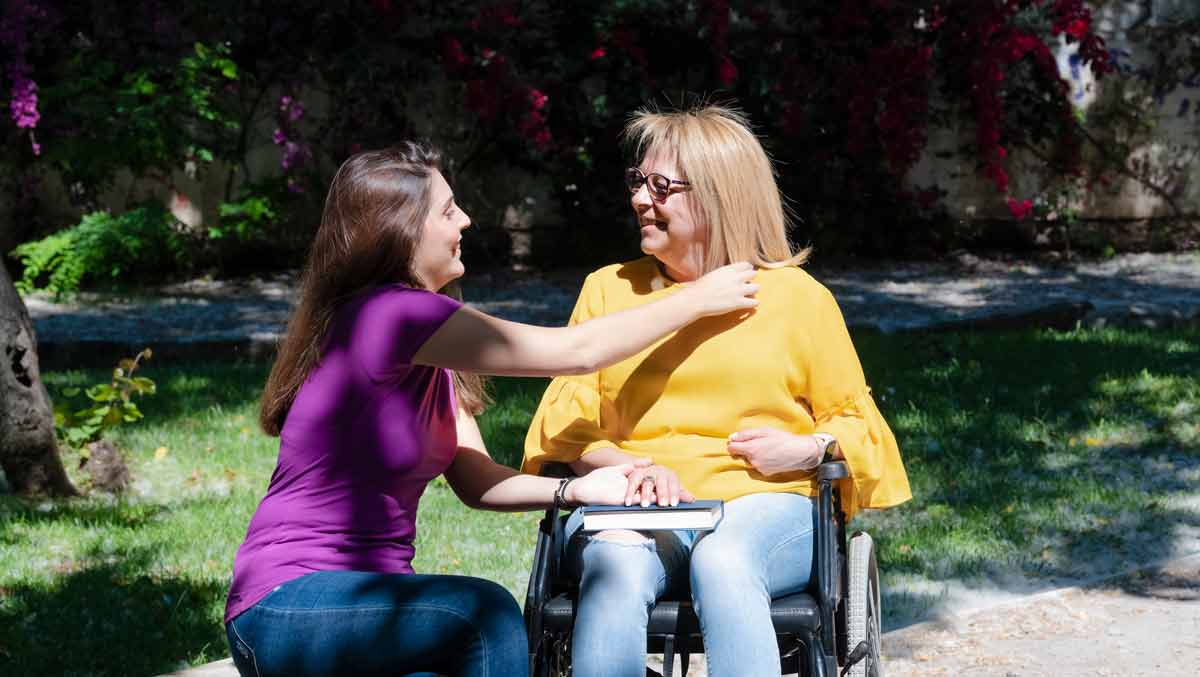Table of Contents
Understanding Medicaid in Oregon
How to Access Caregiver Services if You are a Person in Need of Care
Resources for Families in Oregon
How Family Caregivers Can Get Paid in Oregon: A Guide to Compensation Options
Understanding Caregiver Compensation in Oregon
Key Programs for Caregiver Compensation
Finding the right support for a loved one can be challenging, especially when considering the complexities of Medicaid and caregiver services in Oregon. This blog aims to provide families with essential information on accessing caregiver support through Medicaid, along with helpful tips and resources.
Understanding Medicaid in Oregon
Medicaid is a government program that provides health coverage to low-income individuals, including seniors and people with disabilities. In Oregon, Medicaid offers various programs that can help families access caregiver services, ensuring that your loved one receives the care they need while allowing family members to manage their own responsibilities.
How to Access Caregiver Services if You are a Person in Need of Care
- Eligibility Assessment: Start by determining your loved one’s eligibility for Medicaid. This often involves a financial assessment and a functional needs assessment to understand the level of care required.
- Apply for Medicaid: You can apply for Medicaid online through the Oregon Department of Human Services website, or you can visit a local office for assistance. Gather necessary documents such as income statements and identification.
- Choose a Caregiver Model: Oregon offers different caregiver options, including hiring a family member or using an agency. Each model has its pros and cons, so consider what works best for your family’s needs.
- Create a Care Plan: Once you’ve secured Medicaid coverage, work with a case manager to develop a care plan tailored to your loved one’s needs. This plan should outline the type and frequency of services required.
Tips for Families in Oregon
- Stay Informed: Medicaid policies and procedures can change. Regularly check the Oregon Department of Human Services website for updates and resources.
- Document Everything: Keep detailed records of all communications, assessments, and care plans. This documentation will be invaluable if you need to appeal decisions or adjust services.
- Utilize Support Groups: Connect with local support groups for caregivers. Sharing experiences with others can provide emotional support and practical tips.
- Explore Respite Care Options: If you are a primary caregiver, consider respite care services. These services provide temporary relief, allowing you to take a break and recharge.
Resources for Families in Oregon
- Oregon Department of Human Services (DHS): DHS Website
- Oregon Care Partner Program: Offers training and support for caregivers.
- Alzheimer’s Association of Oregon: Provides resources and support for families dealing with dementia-related issues.
- National Family Caregiver Support Program: Connects families with local resources and support networks.

How Family Caregivers Can Get Paid in Oregon: A Guide to Compensation Options
Caring for a loved one is a rewarding but often challenging endeavor. In Oregon, many family caregivers can receive financial compensation for their invaluable work through various programs and resources. This blog will outline how family caregivers can get paid, the eligibility requirements, and tips for navigating the process.
Understanding Caregiver Compensation in Oregon
In Oregon, family caregivers can be compensated for providing care to eligible individuals, primarily through Medicaid programs. This can help alleviate the financial strain often associated with caregiving and ensure that your loved one receives the support they need.
Key Programs for Caregiver Compensation
- Medicaid Personal Care Program (PCP): This program allows eligible individuals to receive personal care services in their homes. Family members can be hired as caregivers, provided they meet certain criteria.
- Home and Community-Based Services (HCBS): Under this umbrella, various services are available that support caregivers. This can include direct payments to family caregivers for personal care, respite care, and support services.
Aging and People with Disabilities (APD): The APD offers resources and programs designed specifically for older adults and individuals with disabilities, including options for compensating family caregivers.
Steps to Get Paid as a Family Caregiver
- Determine Eligibility
Before applying for compensation, it’s crucial to assess the eligibility of both the caregiver and the care recipient. Generally, the care recipient must meet specific medical and financial criteria for Medicaid services.
- Apply for Medicaid
To start the process:
- Visit the Oregon Department of Human Services (DHS) website or contact your local DHS office.
- Gather necessary documents, including financial statements and proof of medical need.
- Choose a Caregiver Model
In Oregon, you can choose between different caregiver models:
- Agency Model: Work with a licensed agency that hires caregivers and manages payments. This option typically provides additional support and training.
- Self-Directed Care Model: You can hire family members directly, giving you more control over the caregiving process. This model often allows for more flexibility in scheduling and care.
- Create a Care Plan
Once Medicaid approval is granted, collaborate with a case manager to develop a care plan that outlines the specific services needed. This plan should detail the tasks the caregiver will perform, the frequency of care, and any additional support required.
- Complete Training and Certification
Depending on the program, family caregivers may need to complete training or certification to qualify for payment. This ensures that caregivers are equipped with the necessary skills to provide quality care.
- Submit Payment Requests
After you begin providing care, keep detailed records of the hours worked and the services provided. Submit payment requests through the designated channels outlined by the Medicaid program or agency you are working with.

Tips for Family Caregivers
- Stay Organized: Maintain thorough documentation of care hours, services rendered, and communication with healthcare professionals. This will be essential for payment processing and any future needs.
- Know Your Rights: Familiarize yourself with the rights and responsibilities associated with being a paid caregiver under Medicaid. This knowledge can empower you and ensure compliance with regulations.
- Utilize Resources: Reach out to local organizations and support groups for caregivers. They can provide guidance, training, and emotional support throughout your caregiving journey.
- Explore Additional Funding: Investigate other funding options such as grants, local programs, or nonprofit organizations that may offer financial assistance for caregivers.
Conclusion
Being a family caregiver is an essential role that deserves recognition and compensation. In Oregon, several programs provide opportunities for family members to be paid for their caregiving services. By understanding the available options, following the necessary steps, and utilizing resources, you can navigate this process successfully and ensure that your loved one receives the care they need while also supporting your own financial well-being. Don’t hesitate to seek assistance from FreedomCare and stay informed as you embark on this rewarding journey.
